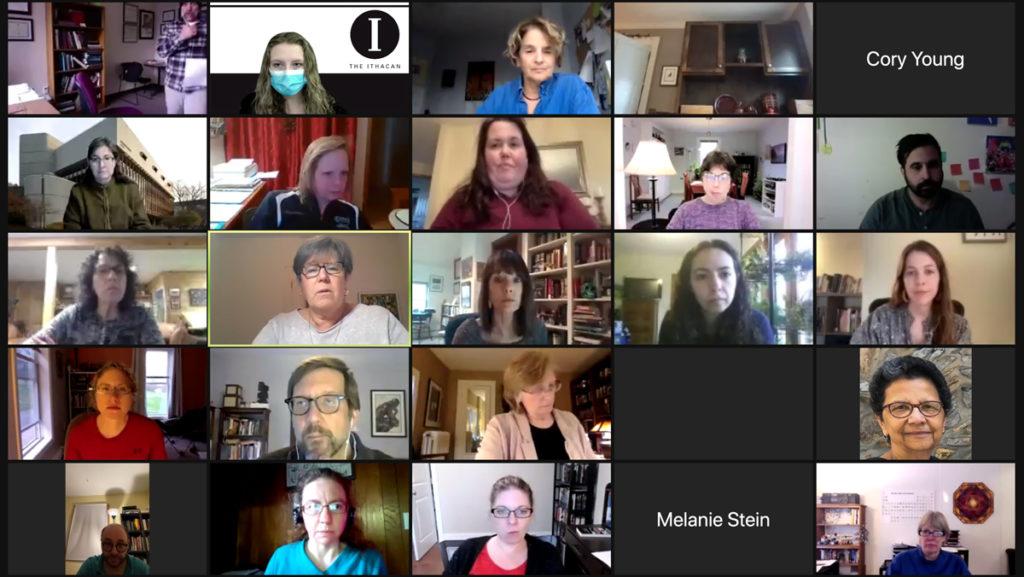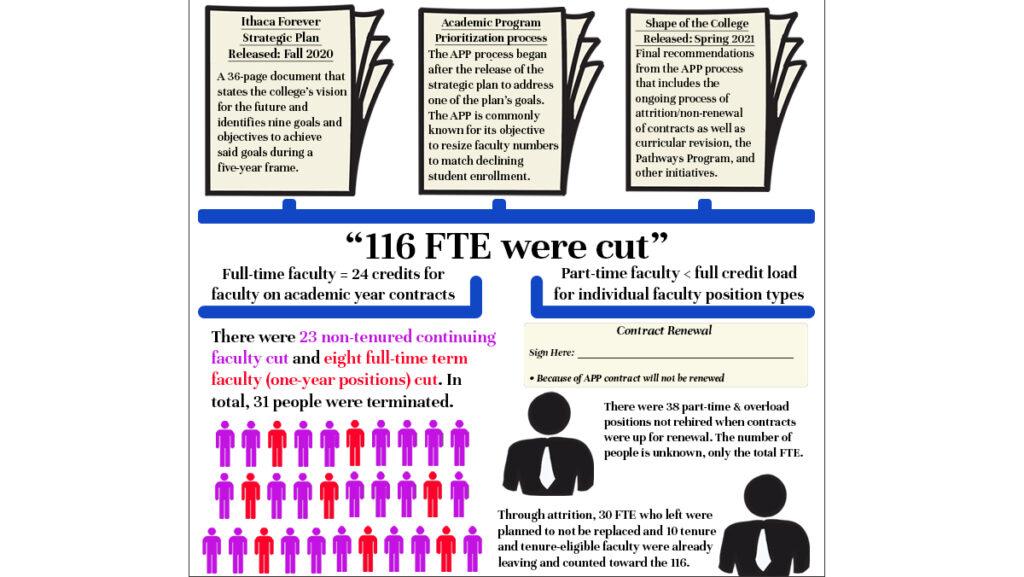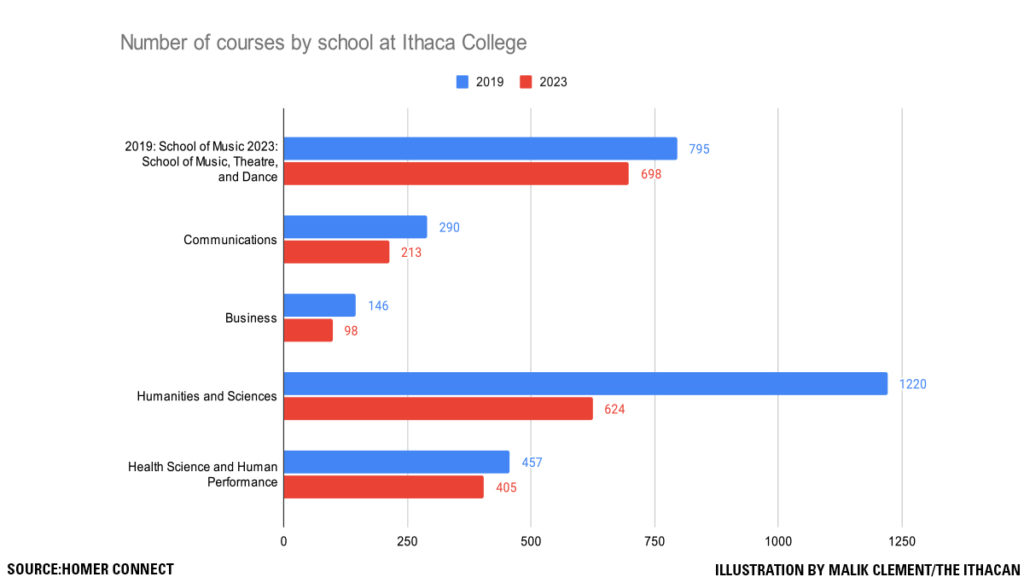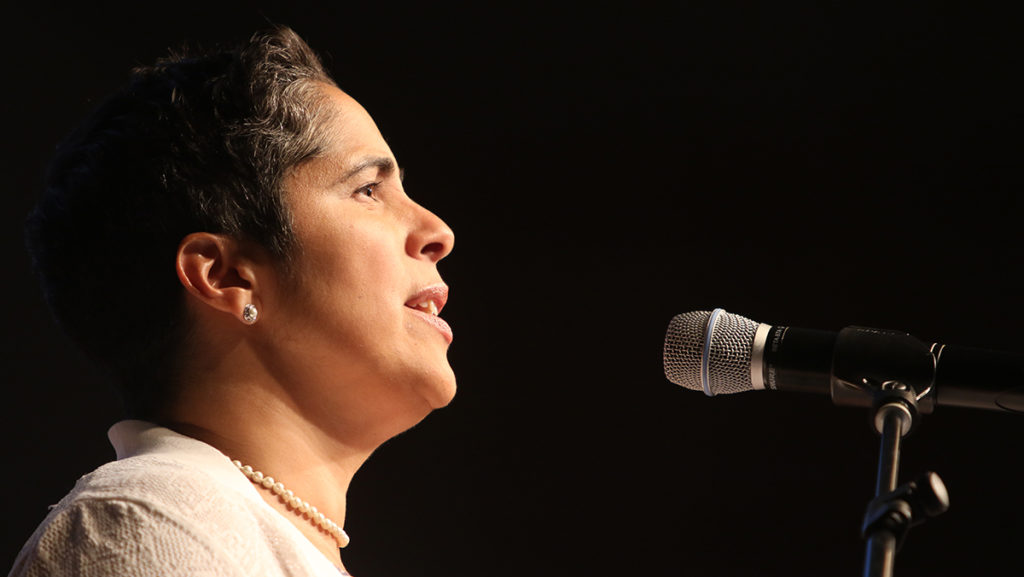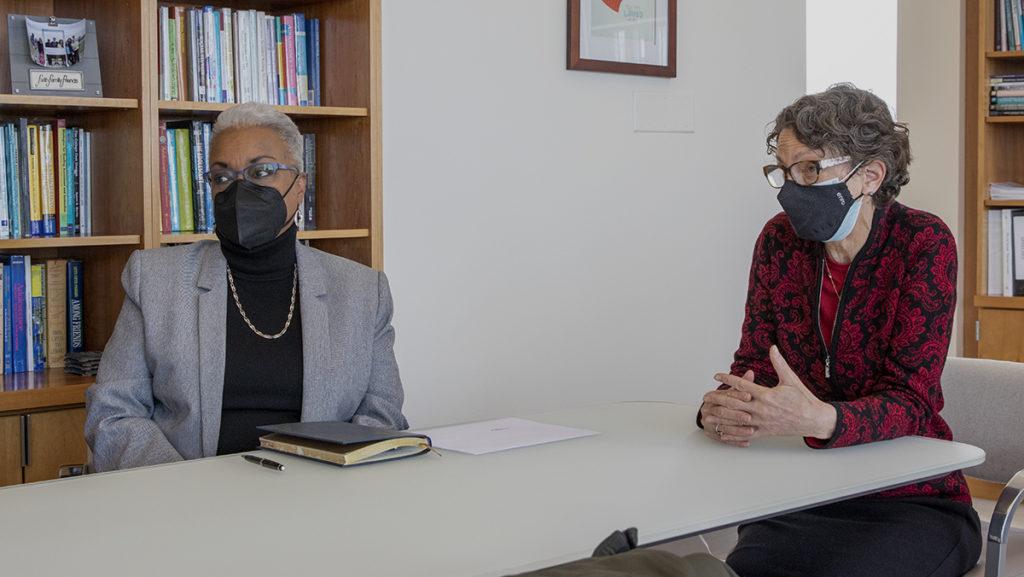The Ithaca College Faculty Council discussed workload requirements for non-tenure eligible notice (NTEN) faculty positions and changes to the Faculty Handbook at its April 6 meeting.
The council spoke with La Jerne Cornish, provost and senior vice president for academic affairs, about possible changes in the workload for NTEN faculty as part of the Academic Program Prioritization (APP) process. Cornish said one of the problems with the NTEN requirements currently is that each of the five schools at the college have different expectations for NTEN faculty. The Academic Program Prioritization Implementation Committee (APPIC) is recommending that all NTEN faculty at the college have a consistent 24-credit instructional workload, according to the “The Shape of the College” document. Currently, this workload ranges from 21 to 24 credits.
Diane Birr, professor in the Department of Music Performance, said she thinks NTEN faculty should not be required to have a 24-credit workload if they are looking to do professional or scholarship work while teaching.
“I really feel strongly that there should be flexibility,” she said. “For faculty to have their load completely teaching and not have the opportunity to expand their horizons, either by performing or doing research or staying current … I wouldn’t want to see somebody teaching at 24 and have no opportunity or no wiggle room, nothing in their load that would allow them to do that type of activity.”
Aaron Witek, assistant professor in the Department of Music Performance, said he believes requiring a 24-credit instructional load will deter candidates from NTEN positions.
“If we change people’s positions to teaching 24 hours and not getting to do scholarly work and service that it may not be attractive,” Witek said. “We’re going to lose some very strong candidates, and specifically in the music school, our performance faculty want to be performing. … We want to treat our NTENs like they’re tenure faculty members. I think that’s important.”
Currently, full-time teaching loads for tenured and tenure-eligible faculty range from 18 to 21 credit hours. The APPIC recommends these faculty teach 20 or 21 credit hours.
The council also discussed changes to the Faculty Handbook, which contains policies and procedures regarding faculty employment. The Bias Review Committee, which was created to make the Faculty Handbook inclusive of all faculty, has recommended several changes be made to the Faculty Handbook. Examples of recommended changes include changing instances of “him/her” to “them,” Jason Freitag, associate professor in the Department of History, said. Cory Young, associate professor in the Department of Strategic Communications, director of the Honors Program and chair of the Faculty Handbook Amendment Committee, spoke with the council about the changes. A survey will be sent to Faculty Council members to vote on the changes.
A survey will be sent to all Faculty Council members in the coming days, and there will be a deadline of approximately two weeks, said Chris McNamara, clinical associate professor and clinic director in the Department of Physical Therapy and chair of the Faculty Council.
McNamara also asked Cornish about what the second phase of the APP entails. Cornish said this will be addressed at the All-Faculty Meeting on April 15.


